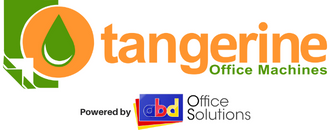Securing a copier lease is an essential step for many businesses, especially for those looking to upgrade office technology without a large upfront investment. However, getting approved for a copier lease requires good financial planning, particularly when it comes to your business’s credit profile. Whether you’re a new business owner or a seasoned entrepreneur, here are the key steps to ensure your company gets approved for copier lease.
Steps to Improve Your Business Credit for Leasing Approval
Your company’s credit score is a major factor in determining whether you’ll be approved for leasing equipment. Here are actionable tips to strengthen your corporate credit:
1. Establish a Business Credit Profile
Your business must have its own credit profile, separate from your personal credit. Establishing this is the first step toward being eligible for a lease. Make sure your business is registered, and apply for a business tax ID (EIN) if you haven’t already done so.
2. Keep Your Business Credit Data Updated
Regularly review your business credit profile to ensure the information is accurate and current. If your business changes locations or phone numbers, make sure those updates are reflected in your credit file to avoid discrepancies.
3. Ensure Bank Account Information Matches Your Credit File
Ensure your business bank account matches the name and address listed on your credit file. Mismatches between your credit profile and banking details can raise red flags during a credit evaluation.
4. Shop Using a Business Account
Whenever you’re making purchases for your business, open vendor accounts under your business name. This helps establish positive payment history, a key metric that lenders look at when deciding whether to approve a lease.
5. Always Use a Business Checking Account for Payments
Pay for business-related expenses using your company’s business checking account or business debit card. This demonstrates that you separate your personal and business finances, which is a positive signal to lenders.
6. Monitor Your Business Credit Regularly
Set up a free business credit monitoring service to track any changes in your credit profile. This helps you stay on top of any new alerts and act quickly if any inaccuracies or issues arise.
7. Dispute Incorrect or Derogatory Information
If you find any derogatory marks on your business credit file, dispute them—even if they are accurate. Sometimes, lenders may remove negative information as a goodwill gesture if you’ve since corrected the situation.
8. Add Positive Payment History
When possible, work with creditors to report positive payment history to your business credit file. Even small creditors can help improve your profile, so don’t overlook any opportunity to add creditworthiness.
9. Apply for Credit Using Consistent Business Information
When applying for credit or leasing, ensure you use the exact business name, address, and information as it appears on your credit file. Consistency matters to lenders.
Why Does Your Business’s Credit Score Matters
Your business’s credit score is a critical factor for lenders when determining whether to extend a lease. A strong credit rating gives assurance to copier leasing companies that your business is financially stable and has a track record of paying bills on time.
Who Checks Your Business Credit?
Lenders are not the only ones who might look at your business credit. Here are other entities that may evaluate your credit file:
- New Customers: Clients may check your business’s financial stability before agreeing to long-term contracts or large orders.
- New Suppliers: Vendors offering trade credit will want to ensure you can pay on time.
- Existing Business Partners: Partners often check your credit to assess if continuing business with you is a low-risk endeavor.
- Lenders: Banks, credit unions, and financial institutions will routinely check your credit before extending funds.
- Surety Companies: Construction firms and other businesses that need surety bonds will have their credit checked as part of the bonding process.
Unlike personal credit, anyone can purchase your business’s credit scores, which makes it essential to stay on top of it.
Why You Should Check on Your Company’s Credit Score
Maintaining a healthy business credit score is just as important as checking the creditworthiness of your customers and partners. Your company’s credit score can impact not only your ability to lease equipment but also how your business is perceived by suppliers, clients, and lenders. A poor credit score can limit your options, making it harder to secure favorable terms or even get approved for leases or loans.
Regularly monitoring your company’s credit profile helps you stay on top of any issues before they become obstacles. If a derogatory mark appears, you can address it promptly to prevent it from affecting your leasing application.
Business credit checks are often conducted through our financial partners at Tangerine Office Machines, including Great America and PEAC Solutions, who assess your company’s financial health and creditworthiness to determine leasing eligibility. Keeping a strong credit profile is essential for a smooth approval process, whether you’re looking to lease office copiers or other essential business equipment.
By proactively checking your credit and ensuring everything is in order, you’ll be well-positioned for successful leasing opportunities and long-term business growth.
Conclusion
Getting approved for copier leasing requires more than just filling out a form. By establishing and maintaining a strong business credit profile, you not only improve your chances of approval but also open doors for future financing and business growth.

